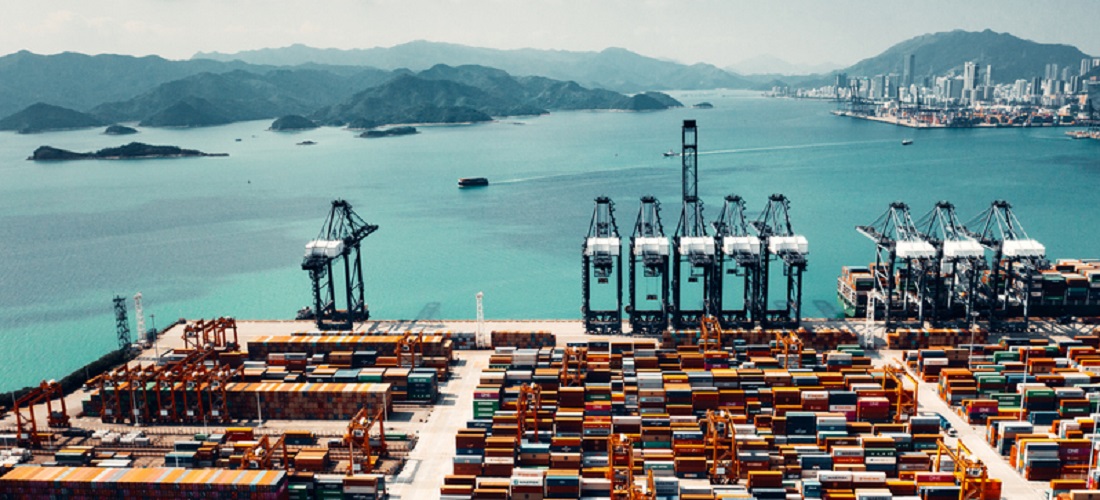
Productive chain bottlenecks are expected to worsen in the coming months
Apr, 26, 2022 Posted by Gabriel MalheirosWeek 202218
China’s strict rules to curb Covid-19 will unleash yet another wave of chaos in the Northern Hemisphere summer (June to September) and worsen productive chain bottlenecks in Asia, the US, and Europe.
China’s zero-tolerance approach in the face of rising cases returns the pandemic to its origins, more than two years after its emergence in Wuhan shook the world economy. Moreover, maritime transportation backlogs in Chinese ports, in conjunction with Russia’s war in Ukraine, might cause a double shock to the global economy and sabotage its recovery, which is already hampered by inflationary pressures.
Even if the outbreaks are controlled, the effects will be felt worldwide and last until the year’s end. “We expect an even worse mess than last year,” said Jacques Vandermeiren, CEO of Antwerp Port, Europe’s second-largest port by cargo tonnage. “This will have a significant negative impact for the entire [year of] 2022.”
China accounts for approximately 12% of global trade, and restrictions enforced due to covid have resulted in idle factories and warehouses, delayed truck deliveries, and worsened container backlogs. Ports in the United States and Europe are already overloaded, rendering them vulnerable to additional shocks. “We believe that waiting times will increase dramatically as product export activities resume and large ships depart for US West Coast ports,” said Julie Gerdeman, CEO of risk research firm Everstream Analytics.
The global trade of products, which plummeted in 2020 and then rebounded in 2021, will take the first hit. However, in the long run, the current disarray may help reorganize the international arena, which is currently dominated by cross-border trade. Attracting remote production networks is no longer a patriotic political motto for some corporate leaders; given the uncertainties, it has become a financial imperative.
On a conference call last week, Lorenzo Berho, CEO of Vesta, a Mexican developer of industrial facilities and distribution centers, said, “the current scenario has exacerbated the pressing need for supply chains to become more regional.” To decrease exposure to Asia, countries such as Mexico are shifting to shorter supply chains. “We may be witnessing the end of globalization as we know it.”
Relocating supply chains “may cost more, but if you can produce smaller quantities that can be sold at values closer to full price, that could really change the game completely,” said Brian Ehrig, partner at consultancy Kearney and co-author of a report released this month that found that 78% of company CEOs are considering or have already relocated facilities to their home countries. “I bet that globalization will never die but will evolve into a different format,” said Shay Luo, Kearney’s director.
Businesses have withstood productive chain bottlenecks due partly to price rises, and consumers have absorbed much of the impact. However, in the medium run, supplies from China pose a more worrying issue than doubts about household demand.
Tesla lost about a month of production with the Shanghai lockdown. Earlier this month, retailer Bed Bath & Beyond reported that a “higher than usual” level of its inventory was in transit, unavailable, or held in ports at the start of this quarter. Last week, aluminum giant Alcoa, which is often a thermometer of the world economy, attributed its higher inventories to problems with transportation. Continental, Europe’s second-largest auto parts maker, has lowered its forecast for growth in world car production from 6% to 9% to 4% to 6%.
Wang Xin, head of the Shenzhen Cross-Border E-Commerce Association, which represents about 3,000 exporters, said that while the lockdown at that tech hub only lasted a week, “many sellers experience delivery delays relative to a month.”
From the moment items are ready to leave a manufacturer in Asia, it still takes an average of 111 days for them to arrive at a warehouse in the United States. According to Flexport, a San Francisco-based carrier, that’s close to the record 113 days set in January and more than double the time the trip took in 2019. The journey to Europe takes 118 days, which is nearly a record.
In an analysis note, Goldman Sachs economists stated last week that productive chain bottlenecks “have been a little worse than we anticipated, and we’ve had to somewhat modify our growth and inflation expectations in response to the past few weeks.” When bottlenecks in Asia begin to dissipate, it will likely bring a flood of containers, just as a seasonal surge in imports begins.
Source: Valor Econômico
To read the full original article, please go to:
-
Meat
Sep, 23, 2020
0
China increases pork imports as stocks run low
-
Grains
Nov, 22, 2022
0
Corn: high international demand keep pace of exports intense
-
Other Cargo
Oct, 31, 2021
0
Suzano approves new plant and exceeds 3Q forecast
-
Feb, 09, 2023
0
China become’s Brazil’s biggest corn buyer in january


